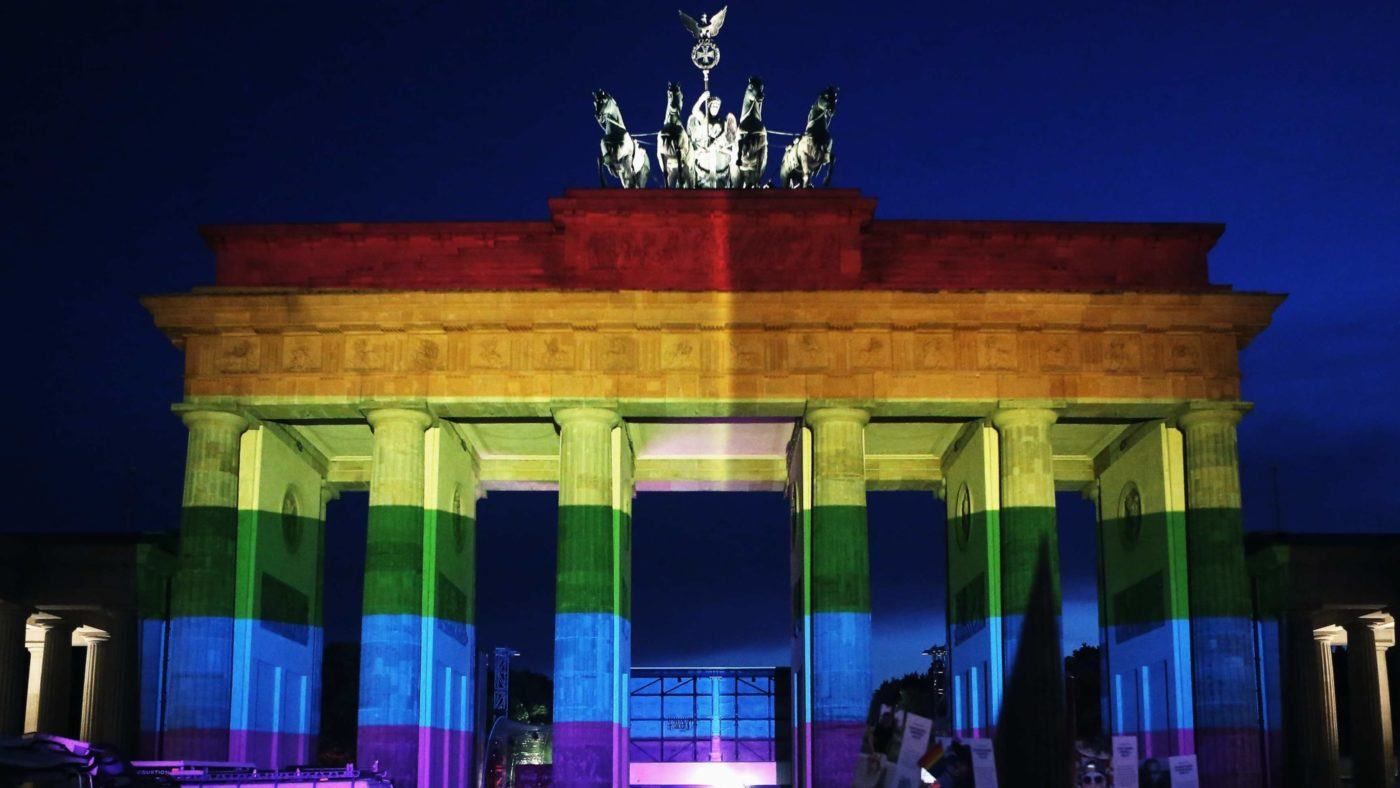In its last parliamentary session before the summer break, the German Bundestag legalised same-sex marriage.
The vote – if not the result – came as a surprise to everyone. Including, perhaps, Merkel herself. Merkel’s party, the Christian Democrats (CDU/CSU) is in a coalition with the Social Democrats (SPD) and both parties had agreed to not put the issue of equal marriage on the table because the CDU/CSU are opposed to gay marriage.
Catching its centre-right coalition partner off guard, the SPD reneged on this non-aggression pact after Mekel signalled that even though she was against gay marriage, she’d consider a free vote in the future. Seizing the advantage, the leader of the SDP, Martin Schultz, called for a snap vote. The sudden move was, of course, best understood in its political context: there is an election in September and Schultz has been lagging in the polls. The smart move worked and together with the votes of the Green Party and the far-left Die Linke, the pro-equal marriage SPD had a majority.
The far-left Die Linke immediately took to the moral high-ground to applaud this strategic success as a demonstration of tolerance. It added that Die Linke has been”fighting for equal rights of gender- and sex-minorities in parliament since 1990″.
The “since 1990” line here is something of a giveaway. Die Linke (literally, “The Left”) is the successor party of the SED, the governing party in East Germany until the Wall came down.
Today, while many abhor the SED’s Marxist-Leninist ideology and the cruelty with which it held onto power, it is assumed that the regime was socially progressive. There was, however, nothing progressive about the treatment of gay East Germans before the fall of the wall.
There was an official pretence of tolerance in East Germany for decades. In 1968, the SED scrapped the anti-gay paragraph 175 from the Criminal Code, which had declared homosexual encounters illegal since 1872. (It took a unified Germany until 1994 to do the same.) But the move was meaningless.
In the cold, harsh reality of socialism, however, gays and lesbians were still distrusted. And whoever was mistrusted by the East German leaders – most of whom considered homosexuality to be the result of “the decadence of the bourgeoisie” – became a target of the regime.
One 1990s study commissioned by the Berlin Senate showed that the East German Ministry of State for Security (MfS) used the so-called Rosa Listen (“pink lists”) to keep records of over 4,000 homosexual men and women. The same lists had been used by the Nazi’s secret police, in order to arrest and intern homosexuals. On the basis of these lists, gays in East Germany were systematically harassed, criminalised and declared ill.
The communist regime was meticulous in its spying on gays, with recordings reading: “This map [circling certain areas in Berlin] showed that 281 homosexuals lived in eleven streets in the old building between Schönhauser Allee and Greifswalder Strasse [street names] in 225 apartments.”
In 1993, the German magazine Focus published other State Ministry reports, including one that read: “They behave conspiratorially against their environment and are ruthless, have large life expenditures, are criminally vulnerable people and strive to make contact with foreigners, especially from capitalist countries.”
Across all professions, when homosexual tendencies or practices became known, the person was deemed to be a disruptive factor for this family-oriented and socialist environment. Their social decline was inevitable – and all too many ended in suicide.
Meanwhile, medical professionals made careers “combating” homosexuality. The endocrinologist Professor Günther Dörner won the “National Prize of East Germany” for long-term trials with rats in which he tried to influence their sexual behaviour with hormone treatment. It was the same scientific logic that lead the Nazis to conclude that homosexuality was a disease that needed to be eradicated.
This shameful past means that today’s far-left cannot claim the moral high ground on the issue of tolerance. Its ideological roots are inherently antagonistic. The rhetoric of “the have and the have nots” or “them and us” can be applied to any group.
It is only through genuine distrust in collectivism, as both an economic system and a prism through which to view society, that we can dismantle the dangerous language of socialism. Let’s start by revealing its history.


